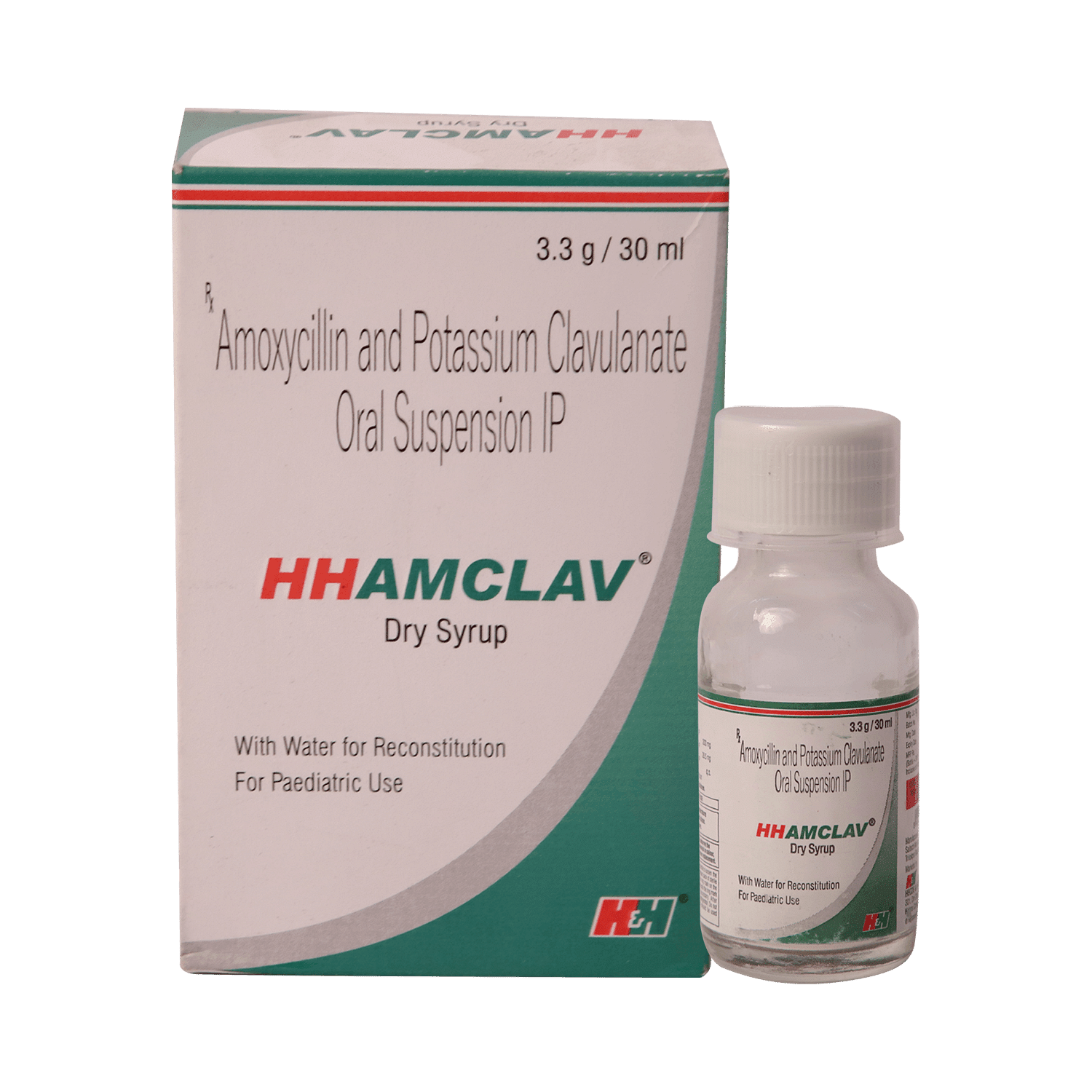
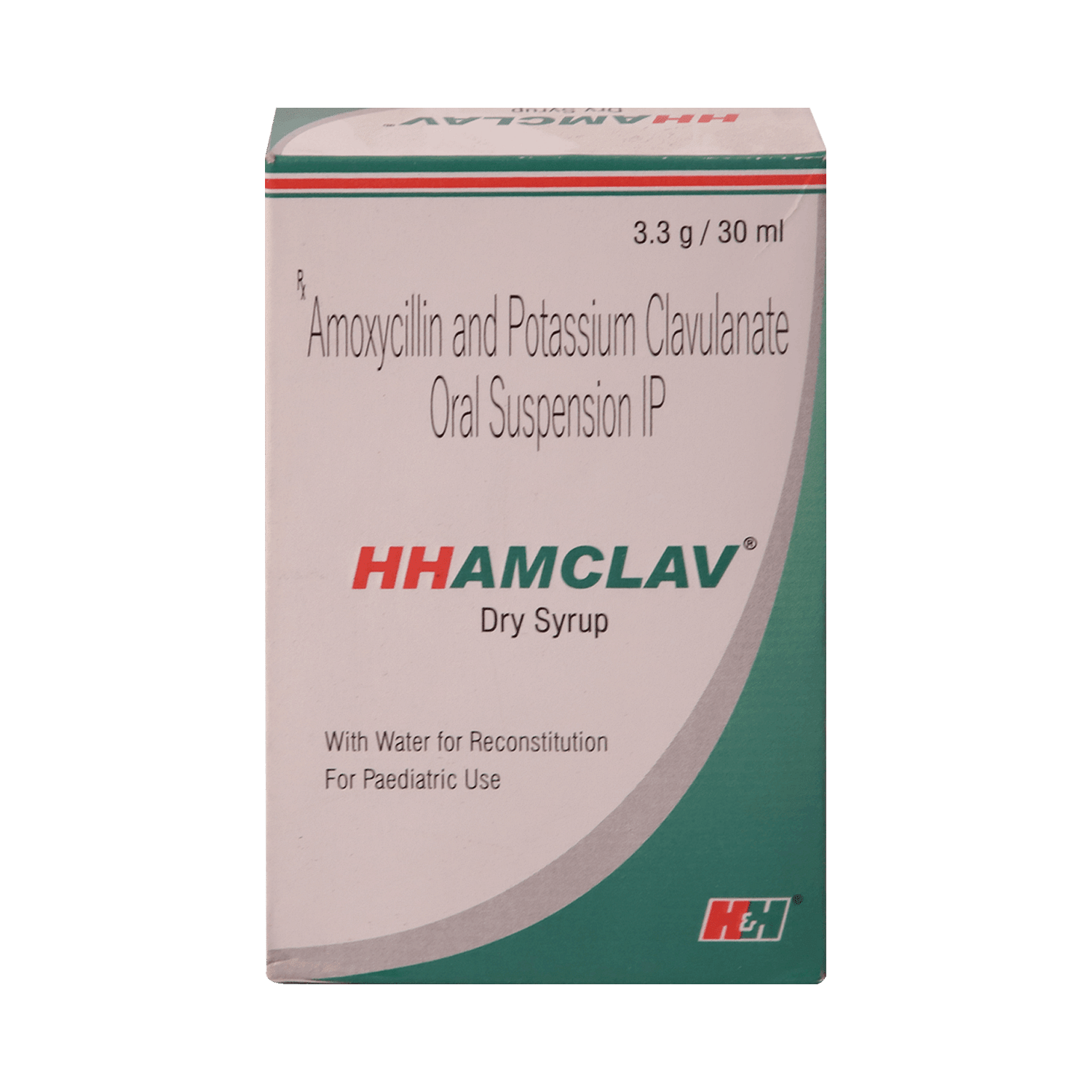
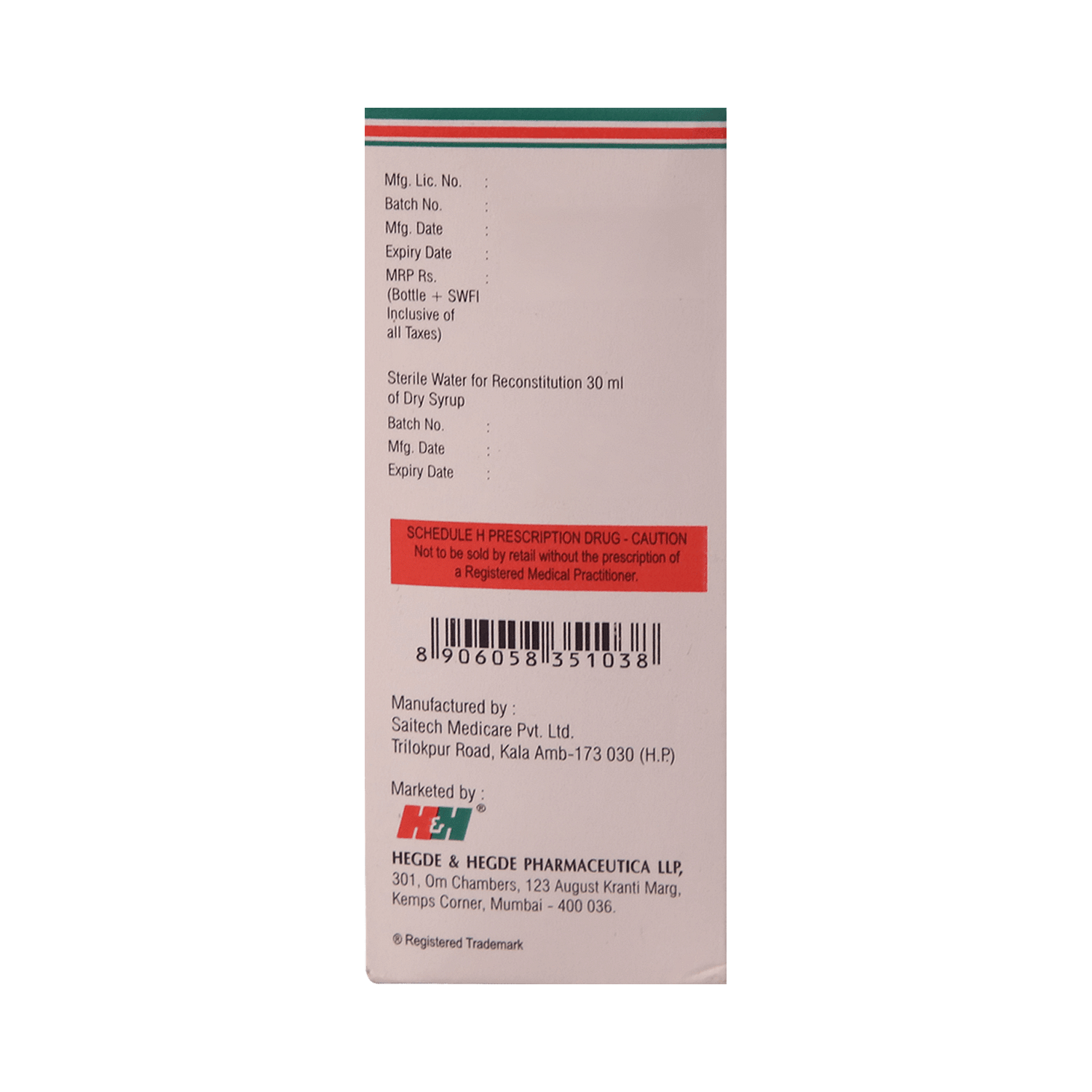
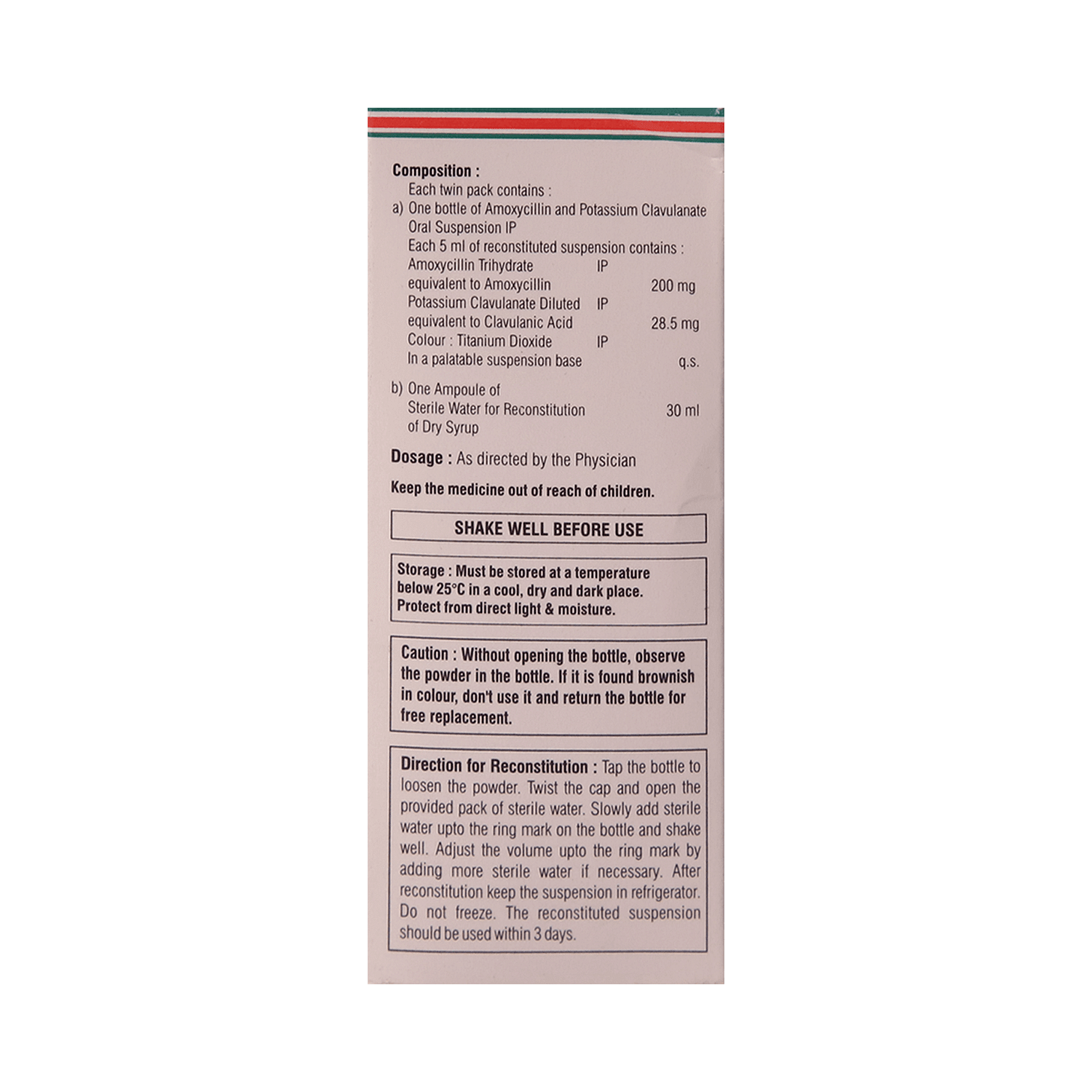
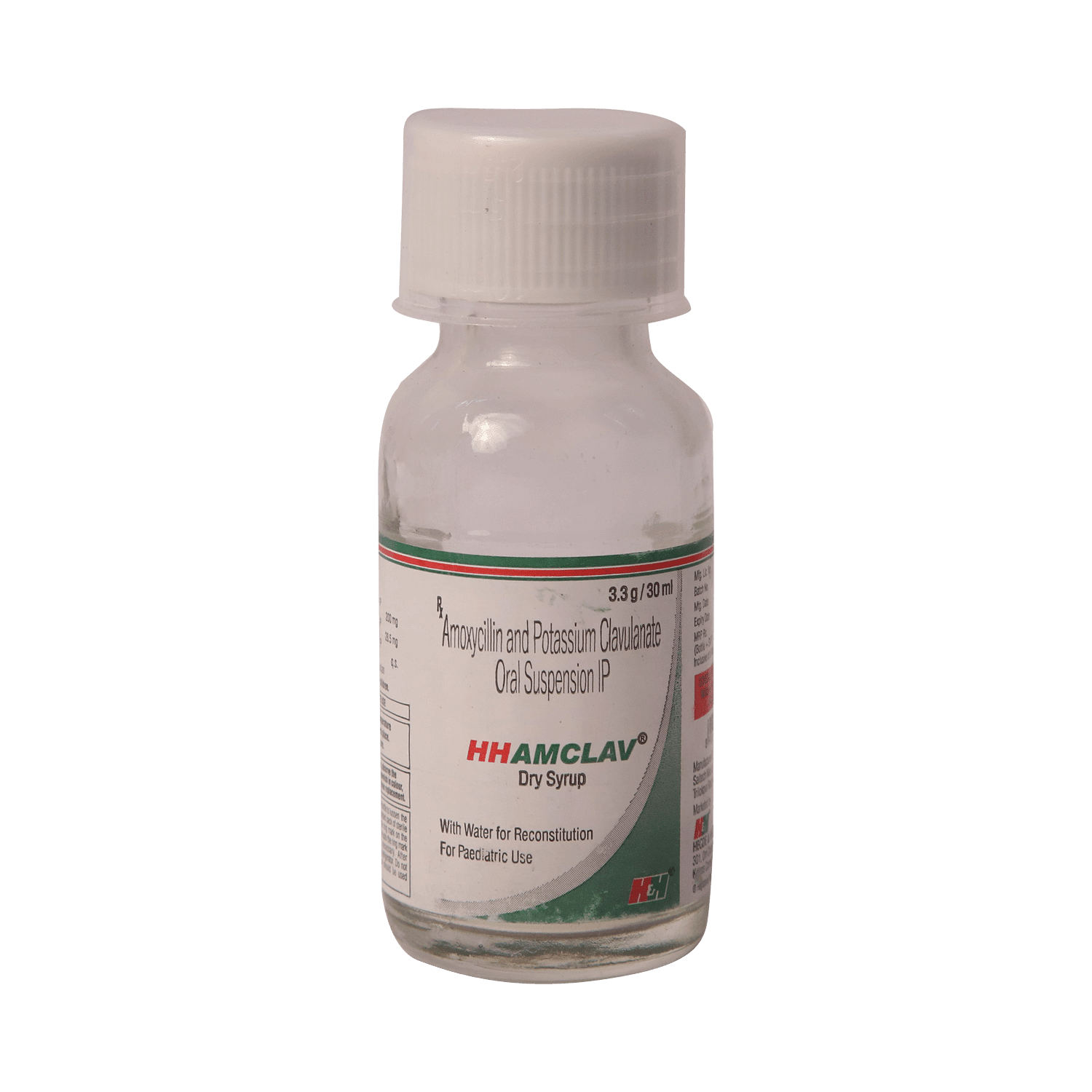
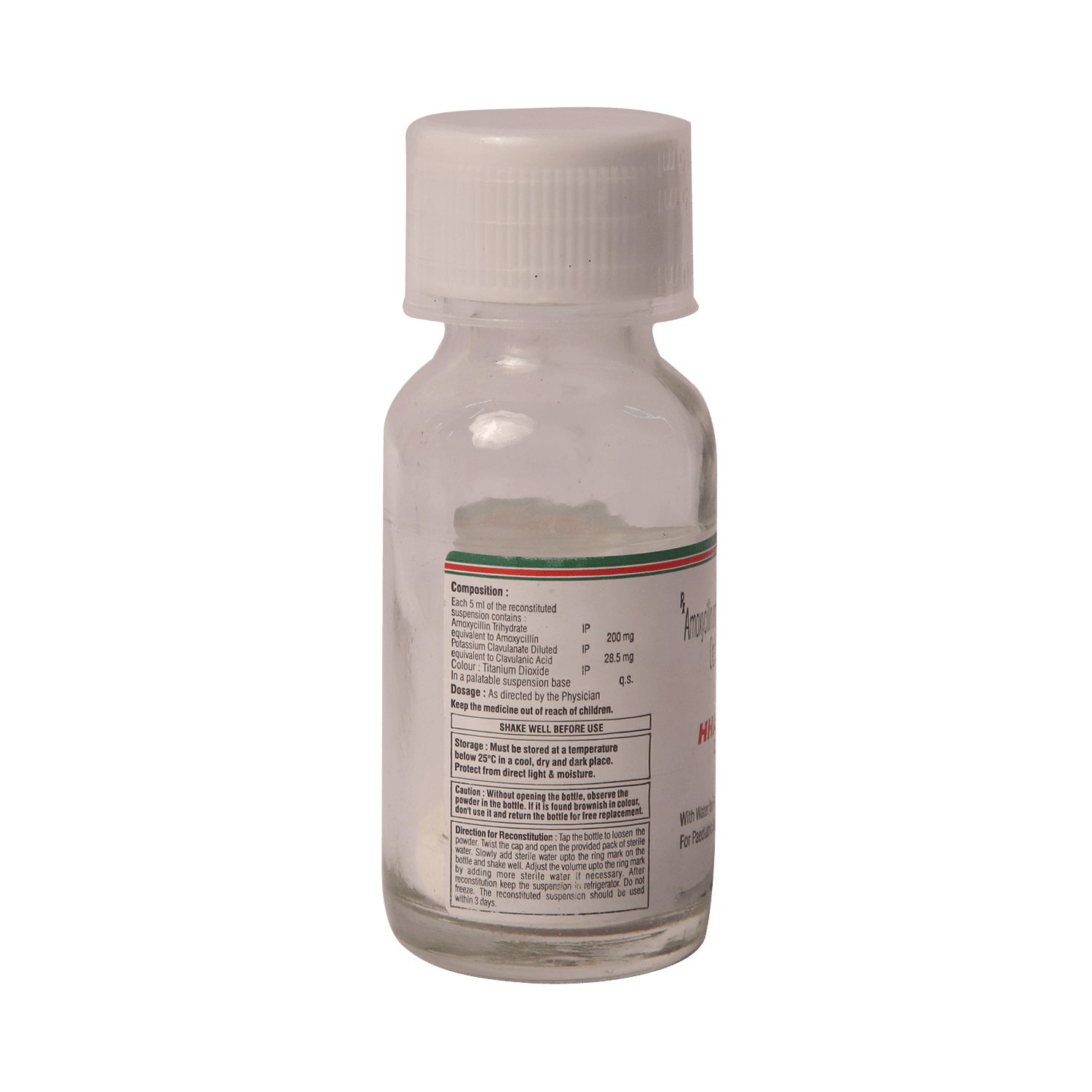
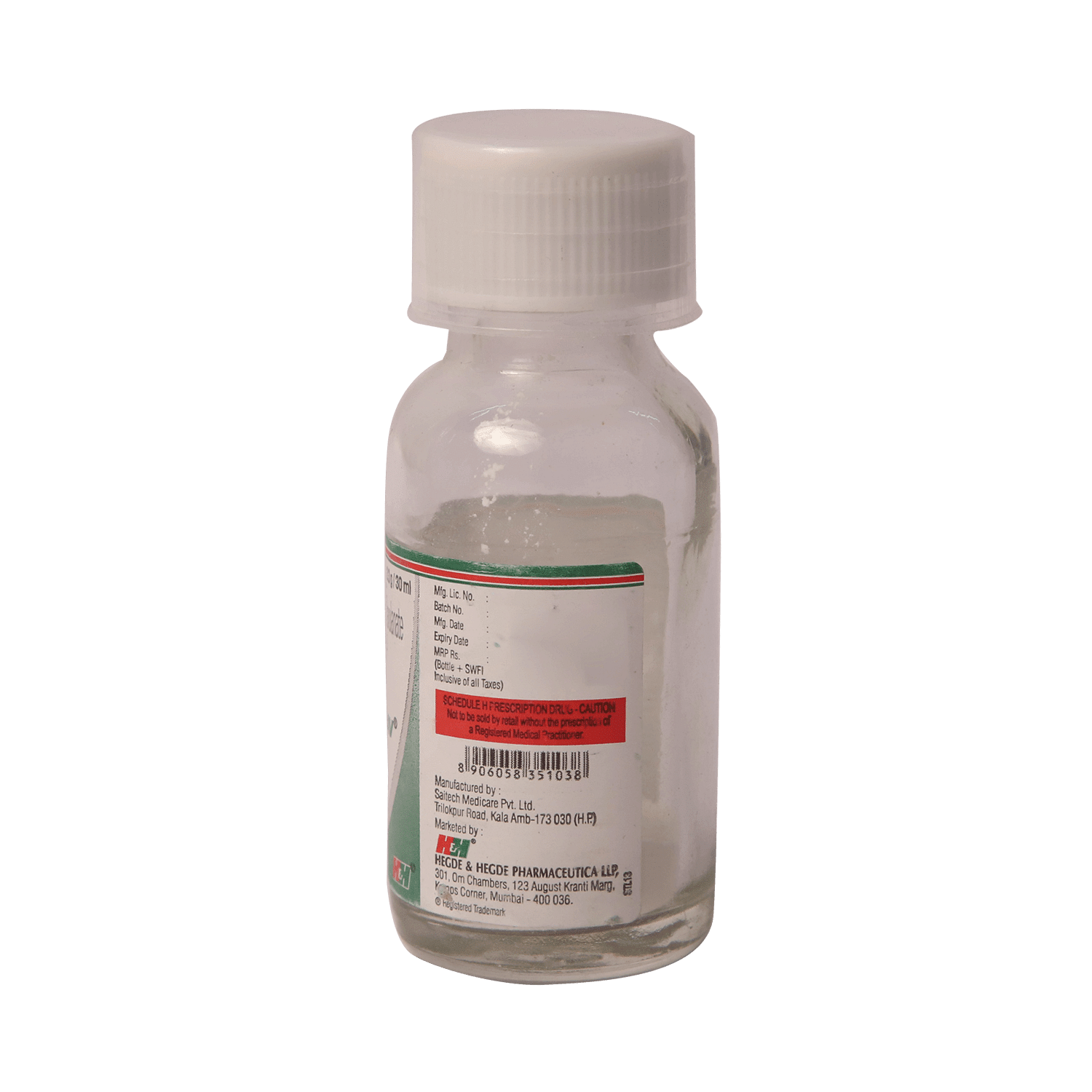
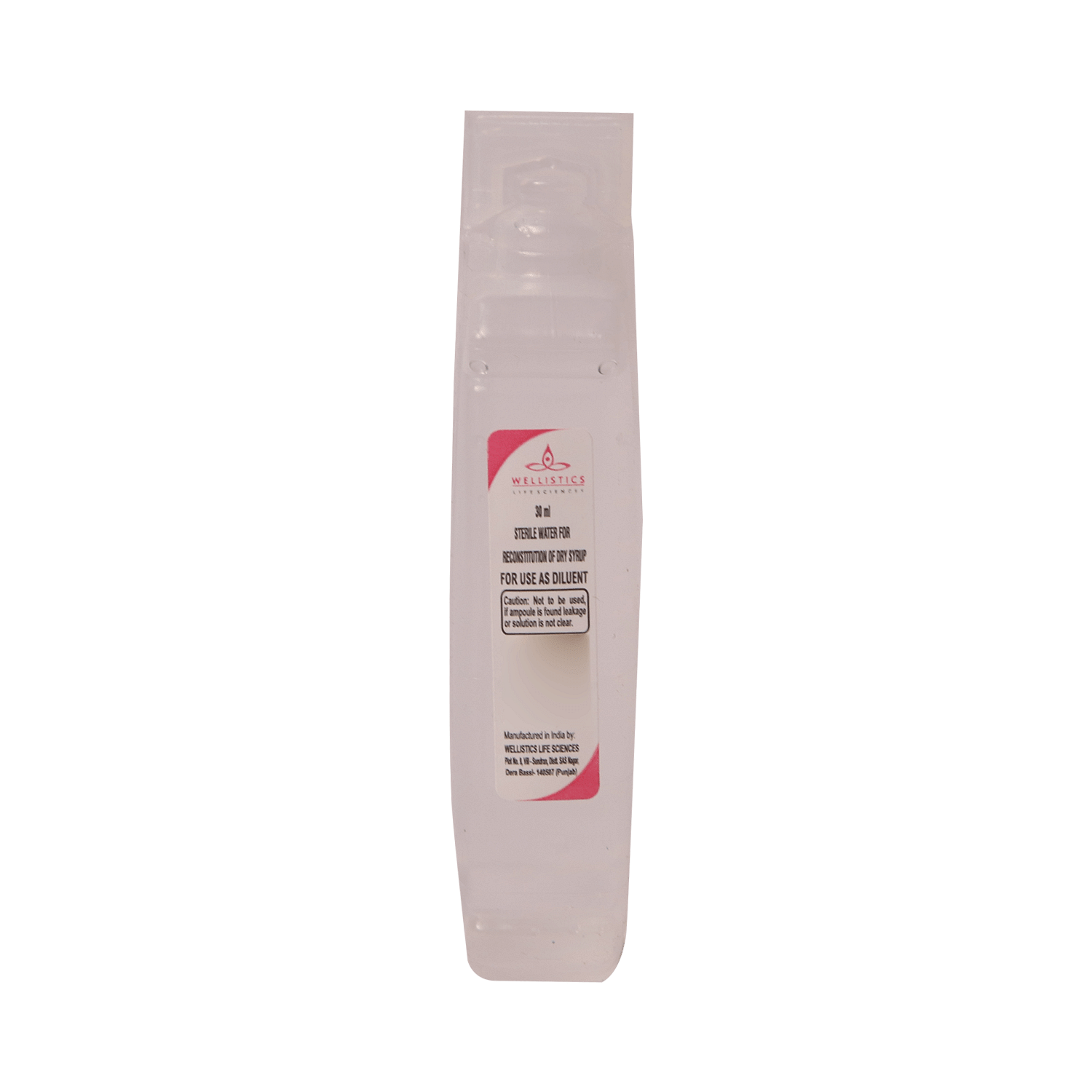
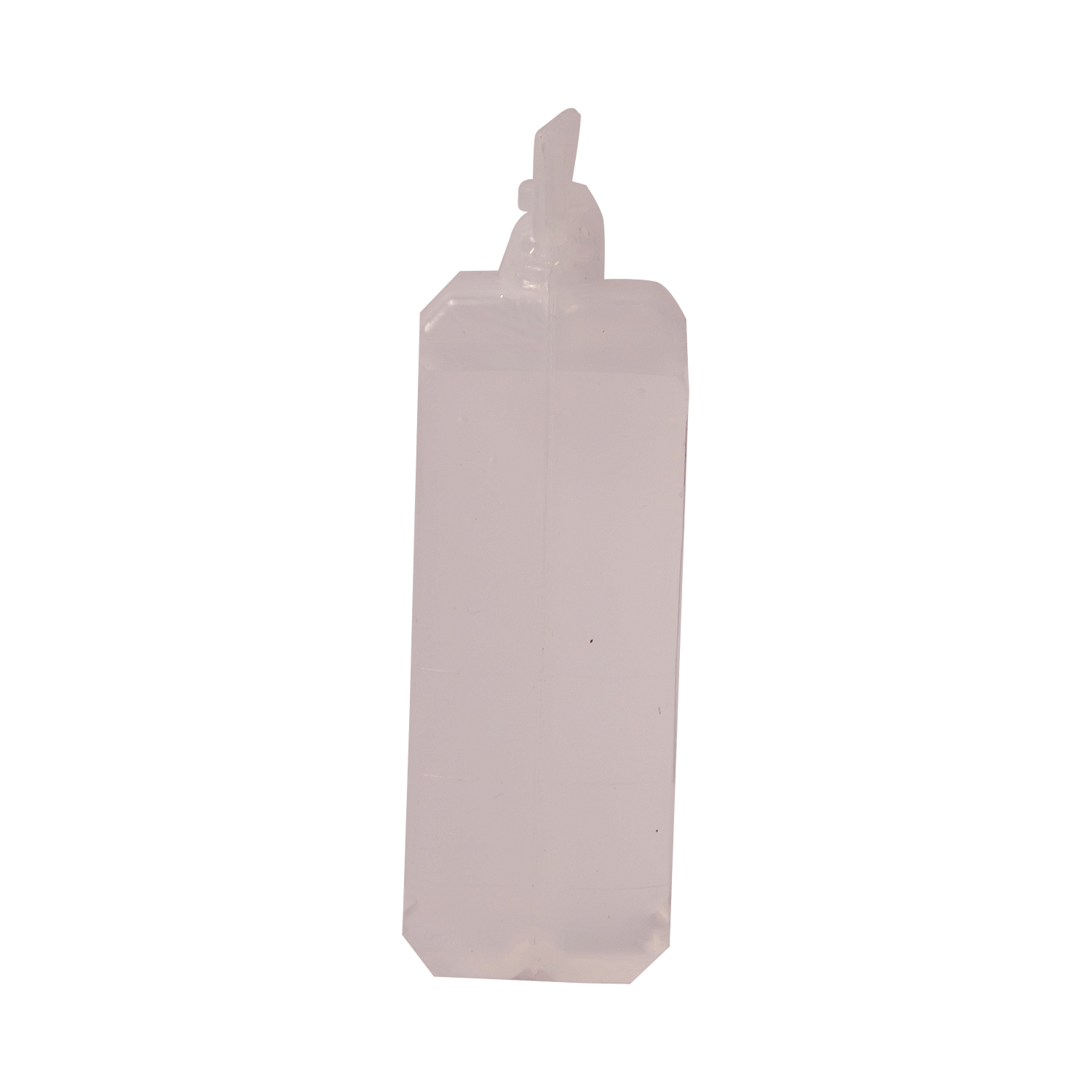
Hhamclav Dry Syrup
Manufacturer
Hegde and Hegde Pharmaceutical LLP
Salt Composition
Amoxycillin (200mg/5ml) + Clavulanic Acid (28.5mg/5ml)
Key Information
Short Description
Hhamclav Dry Syrup is an antibiotic medicine that helps treat bacterial infections of the ear, nose, throat, chest, lungs, teeth, skin, and urinary tract.
Dosage Form
Dry Syrup
Introduction
Hhamclav Dry Syrup is an antibiotic medicine that helps treat bacterial infections of the ear, nose, throat, chest, lungs, teeth, skin, and urinary tract. It is capable of killing bacteria that have become resistant to other therapies and thus also helps treat tuberculosis that is resistant to other treatments.
Directions for Use
Never give Hhamclav Dry Syrup to your child until and unless prescribed by the doctor. You must also never share your child’s medicine with anyone else even if they show similar symptoms.
Safety Information
Side Effects
No common side effects listed.
How it works
Hhamclav Dry Syrup is an antibiotic. It has two active agents amoxycillin and clavulanic acid. Amoxycillin works by preventing the formation of the bacterial protective covering (cell wall) essential for the survival of the bacteria. Whereas clavulanic acid serves a special purpose of inhibiting an enzyme (beta-lactamase) that is produced by resistant bacteria. This makes the combination of amoxycillin and clavulanic acid an effective line of treatment for many types of infections.
Quick Tips
Your child must complete the entire course of antibiotics. Stopping too soon may cause the bacteria to multiply again or cause another infection. Your child may have a bitter taste in the mouth after the intake of Hhamclav Dry Syrup. Eating citrus fruit or sipping plenty of water or fruit juice may help. Encourage your child to drink plenty of water in case diarrhea develops as a side effect. Never give Hhamclav Dry Syrup until and unless prescribed by the doctor. Do not give Hhamclav Dry Syrup to treat common cold and flu-like symptoms caused by viruses.
Related Medicines
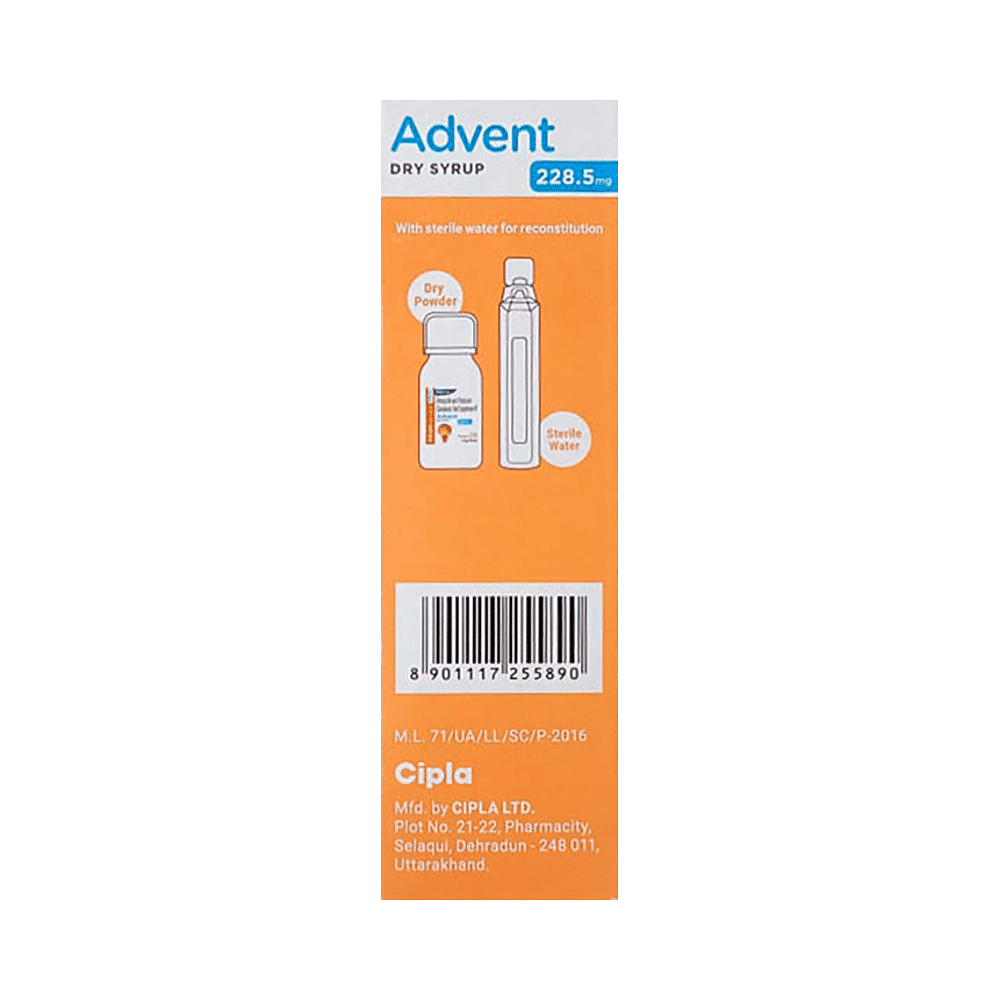
Advent 228.5mg Dry Syrup Tangy Orange

Jomoxlin Clav Dry Syrup

Insimox CV Dry Syrup

Reclav 30 Dry Syrup

Moximit CV Dry Syrup

Zemoxy-CV Dry Syrup

Amoxyoj CV Dry Syrup

Zoxiclav Dry Syrup

UV Clav CV Dry Syrup

Auxgo Dry Syrup
Frequently asked questions
Can other medicines be given at the same time as Hhamclav Dry Syrup?
Hhamclav Dry Syrup can sometimes interact with other medications or substances. It is crucial to inform your child's healthcare provider about any other medications they are taking before starting Hhamclav Dry Syrup. Additionally, consult their doctor before administering any medication to your child.
Can I get my child vaccinated while on treatment with Hhamclav Dry Syrup?
Generally, antibiotics do not interfere with vaccine ingredients or cause a negative reaction in children who have recently received a vaccination. However, it is advisable to postpone vaccinations until your child recovers from their illness. Once they feel better, the doctor can administer the vaccine.
Which lab tests may my child undergo while taking Hhamclav Dry Syrup on a long-term basis?
Under prolonged therapy, regular monitoring of kidney and liver function tests may be necessary to assess your child's condition.
Can I give a higher than the recommended dose of Hhamclav Dry Syrup to my child?
Giving a dosage exceeding the recommended amount of this medication can increase the likelihood of side effects. If you observe an increase in your child's symptoms, consult their doctor for reassessment.
Can I stop giving Hhamclav Dry Syrup to my child when the symptoms are relieved?
No, do not stop administering this medication unless the full course of treatment is completed, even if your child appears better. Symptoms may improve before complete eradication of the infection, and continuing the medication for the prescribed duration can still yield beneficial effects.
Can Hhamclav Dry Syrup cause diarrhea in my child?
Yes, Hhamclav Dry Syrup can lead to diarrhea. This is because it kills harmful bacteria and can also disrupt the balance of good bacteria in your child's stomach, which could trigger diarrhea. Encourage your child to drink plenty of fluids if they experience diarrhea. It is essential to consult their doctor if the diarrhea persists or you observe signs of dehydration, such as decreased urination (dark-colored, strong-smelling urine). Do not administer any other medication without consulting a healthcare professional.
Do all viral common colds result in secondary bacterial infection?
Most viral common colds do not lead to secondary bacterial infections. In fact, giving antibiotics in viral infections can increase the risk of adverse reactions. It is always best to consult a healthcare professional for appropriate treatment.
The mucus coming out of my child’s nose is yellow-green. Is this a sign of a bacterial infection?
Yellow or green mucus in the nose does not necessarily indicate a bacterial infection. During a common cold, mucus can thicken and change color (from clear to yellow or green). Symptoms typically last for 7-10 days.
Is there any sign which shows that my child needs immediate medical attention?
Call your child's doctor immediately if they exhibit signs of severe allergic reactions (breathing difficulties, skin rashes), gastrointestinal distress (diarrhea) or liver damage (weakness, paleness, vomiting). While rare, these side effects are potentially serious and necessitate expert medical intervention.


